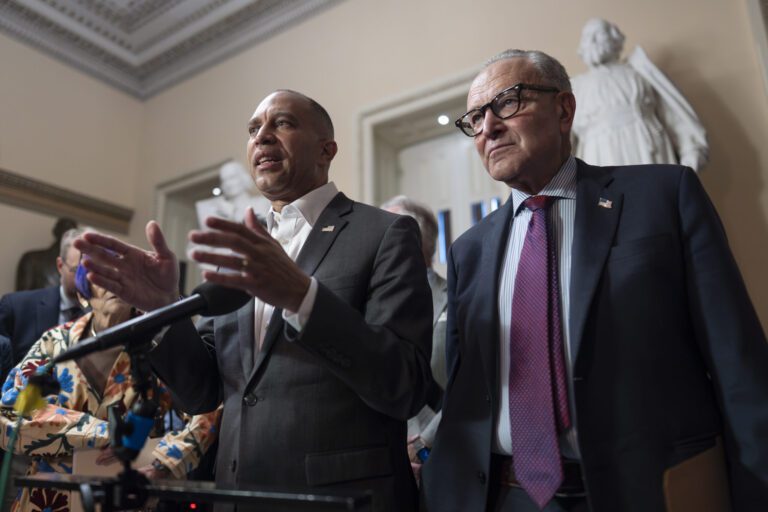Democrats Seek Negotiation With Trump Ahead of Government Shutdown
Focus Keyword: Government Shutdown
As the September 30 deadline for a potential government shutdown looms, Congressional Democrats are making a concerted effort to engage President Trump in negotiations. This comes after recent votes in the Senate resulted in the rejection of both Republican and Democratic short-term funding proposals.
Senate Blockage and House Actions
The Senate’s failure to pass funding measures leaves Democrats in a strong position, particularly as Senate Minority Leader Chuck Schumer holds significant leverage over legislative proposals. His party’s unified stand enables them to obstruct any funding bill unless their demands are met.
Key Developments:
- The House has passed a Continuing Resolution aimed at maintaining government operations through November 21.
- This resolution is intended to facilitate bipartisan discussions that could ultimately lead to a comprehensive budget deal before Thanksgiving.
Democrat’s Strategy: A Shift in Tactics
Having faced criticism from their activist base earlier in the year for compromising with Trump’s government funding strategies, Democrats are now poised to transform this negotiation into a pivotal battle. Their recent actions indicate a desire for substantial legislative wins.
Priority Issues for Democrats:
- Extension of Biden-era enhanced health insurance subsidies
- Restrictions on Trump’s authority to issue rescission requests, which allow him to unilaterally cut funding
In an interview on CNN’s “State of the Union,” Schumer expressed hope that Trump would agree to meet and discuss a bipartisan approach. He emphasized, “The American people are on our side.”
Public Opinion on Government Shutdown Responsibility
Polling data supports Schumer’s assertion that Democrats may escape significant blame should a government shutdown occur. A recent survey by Data for Progress found that:
- 59% of Americans would hold Trump or Congressional Republicans responsible for a shutdown.
- Only 34% would attribute blame to Democrats.
This favorable positioning could motivate Democrats to take a firm stand during negotiations.
Challenges Ahead in the Senate
Democrats currently possess the capability to stall funding legislation in the Senate, where a 60-vote threshold is necessary to conclude debate. Earlier this year, a handful of Democrats crossed party lines, facilitating Republican efforts to keep the government funded.
Prior to the passage of their funding bill, Democrats introduced an alternate proposal that aimed to permanently extend health insurance subsidies and revoke the president’s power to make unilateral funding cuts.
Schumer’s Firm Stance
Schumer reiterated his commitment to addressing healthcare concerns, insisting that “We need to get something done to relieve the distress the American people are in.”
Trump’s Position and Willingness to Communicate
On Saturday, President Trump indicated his willingness to meet with both Schumer and House Democratic leader Hakeem Jeffries, expressing admiration for Schumer’s earlier decision to support funding efforts. However, his past comments have shown skepticism about bipartisan cooperation, urging Republicans to advance their agenda independently of Democrats.
In his own words, Trump stated, “There is something wrong with them… Don’t even bother dealing with them.” This reflects his belief that GOP unity could suffice in overcoming Democratic opposition.
Conclusion: Turning Points Ahead
With time ticking down to the September 30 deadline, the coming days will be crucial in determining the outcome of negotiations concerning government funding. Should Trump decide to engage sincerely with Democrats, a compromise could emerge to avert a shutdown. However, if partisan divisions remain, the implications could be significant for both parties.
For more information on the potential impacts of a government shutdown and ongoing negotiations, see additional resources available through CNN and Data for Progress.


